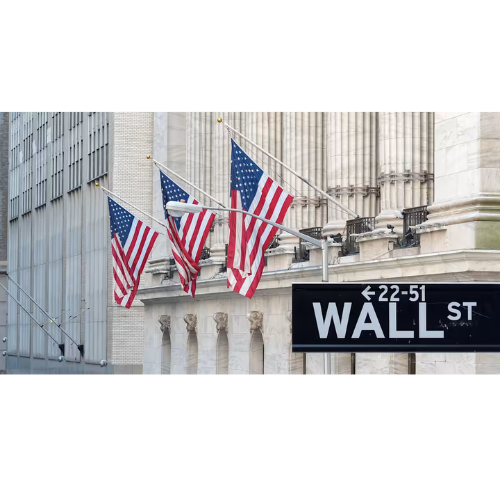Wall Street Faces the Rise of Artificial Intelligence: A Future of Banking Jobs at Risk
In recent years, artificial intelligence (AI) has stopped being a futuristic concept and has become an unavoidable reality across industries. Nowhere is this shift more visible, and more alarming, than in the financial sector. On Wall Street, where human expertise, intuition, and personal connections once defined success, AI is reshaping the landscape with astonishing speed. For professionals in banking, trading, and investment management, the rise of machine-driven decision-making is more than a technological innovation: it is a direct challenge to the future of their careers.
From Human Traders to Algorithms
The transformation of Wall Street did not happen overnight. For decades, algorithmic trading has been part of the financial ecosystem. Simple mathematical models gradually replaced the chaotic shouts of traders on the floor. However, the difference today is the power of AI systems that can analyze millions of data points in real time, learn from patterns, and execute trades without human intervention.
What was once a complement to human judgment is now evolving into a replacement. AI does not get tired, does not rely on emotions, and can adapt strategies faster than a human analyst can open a spreadsheet. In this sense, Wall Street is becoming less about individual expertise and more about who can develop, train, and deploy the most advanced models.
Jobs Under Pressure
The first casualties of this transformation are roles that involve repetitive or data-intensive tasks. Entry-level analysts, junior bankers, and research assistants are finding themselves displaced by software capable of processing reports, summarizing financial news, and generating models in seconds.
Even more sophisticated positions, such as portfolio managers and risk analysts, are being partially automated. AI tools can simulate thousands of market scenarios and deliver risk assessments far faster and more accurately than traditional teams. The same applies to compliance departments, where monitoring transactions for suspicious activity is increasingly entrusted to machine learning systems.
No job on Wall Street is immune to automation. While some tasks may remain human-centered, many positions that once represented the starting point for long careers in finance are disappearing or changing beyond recognition.
The Illusion of Irreplaceability
For years, many professionals on Wall Street believed that human relationships and negotiation skills would shield them from disruption. After all, closing a billion-dollar deal or securing a high-profile client requires trust, charisma, and intuition.
However, even in areas like investment banking advisory or wealth management, AI is starting to encroach. Chatbots and AI-driven advisory platforms are already providing clients with tailored investment strategies, real-time insights, and portfolio recommendations. While these systems cannot yet replicate the warmth of human interaction, they are increasingly attractive to clients who value speed, low fees, and data-backed recommendations.
The illusion of irreplaceability is fading. Just as taxi drivers once thought they were safe before the arrival of ride-hailing apps, many on Wall Street may be underestimating the disruptive power of AI.
Winners and Losers
The long-term impact of AI on Wall Street will not be uniform. There will be winners and losers, depending on how quickly professionals adapt to the new reality.
- Winners: Those who embrace AI, learn to work alongside it, and develop hybrid skills will be in high demand. Professionals with backgrounds in finance and data science, or those capable of translating complex AI models into strategic decisions, will become indispensable.
- Losers: Those who cling to traditional roles and resist change will see their career paths shrink. Entry-level positions, once essential stepping stones, may vanish entirely, leaving fewer opportunities for young graduates to enter the industry.
This bifurcation raises a profound question: if AI replaces the lower rungs of the financial career ladder, how will the next generation of bankers and traders gain the experience needed to rise to leadership positions?
Wall Street’s Ethical Dilemma

Beyond efficiency, AI also introduces ethical and regulatory challenges. Financial institutions increasingly rely on black-box algorithms whose decision-making processes are opaque, even to their creators. When billions of dollars move in fractions of a second based on AI recommendations, accountability becomes blurry.
Moreover, the fear of systemic risk is real. If multiple firms use similar AI-driven strategies, the market could become more fragile, amplifying volatility instead of reducing it. Regulators are only beginning to grapple with these questions, but the pace of innovation is already outstripping oversight.
Preparing for the Future
Despite the challenges, the rise of AI on Wall Street does not necessarily spell doom for human workers. Instead, it demands reinvention. Professionals who wish to remain relevant must:
Develop technological literacy – Understanding how AI models work, their strengths, and their weaknesses will be essential.
Focus on uniquely human skills – Creativity, strategic vision, ethical judgment, and interpersonal relationships remain areas where humans still hold an advantage.
Adopt lifelong learning – The days of studying finance in college and relying on that knowledge for decades are over. Constant upskilling is no longer optional.
Looking ahead, it is difficult to imagine a Wall Street untouched by artificial intelligence. By 2030, it is plausible that the majority of transactions, compliance monitoring, and even parts of client advisory will be fully automated. Human workers will likely become strategic overseers, ensuring that the systems function within ethical and regulatory boundaries.
Yet this future is not guaranteed to be smooth. If the industry fails to balance technological efficiency with social responsibility, the consequences could be severe: mass job losses, reduced upward mobility for new entrants, and a financial system vulnerable to algorithmic failures.
